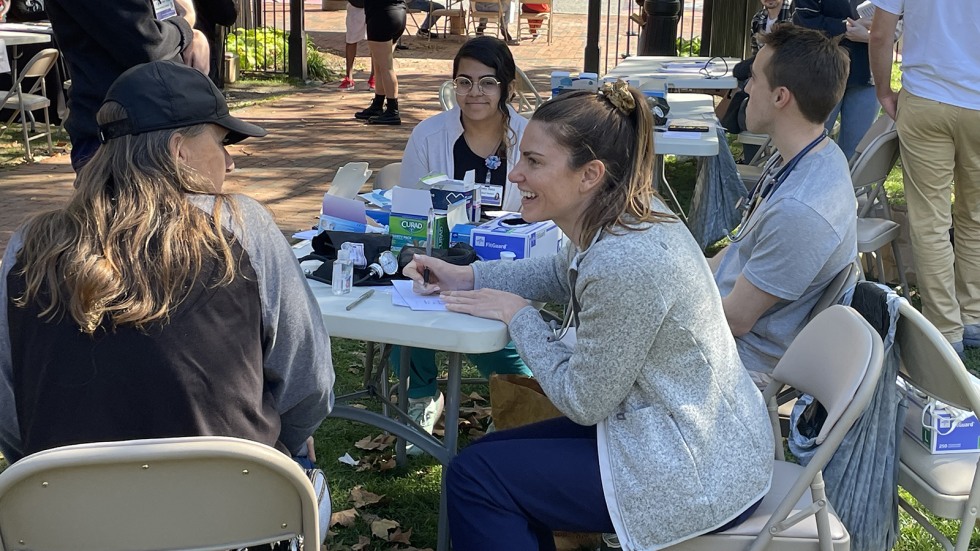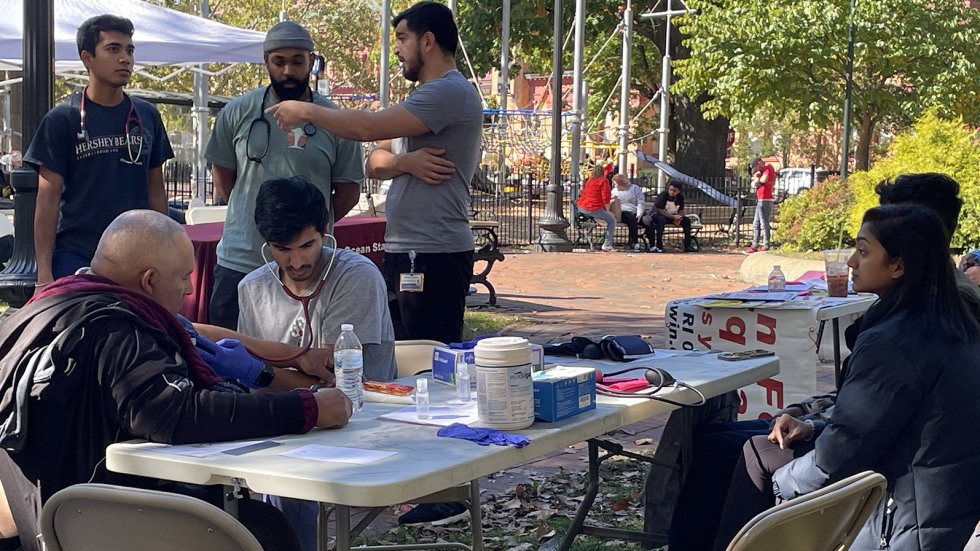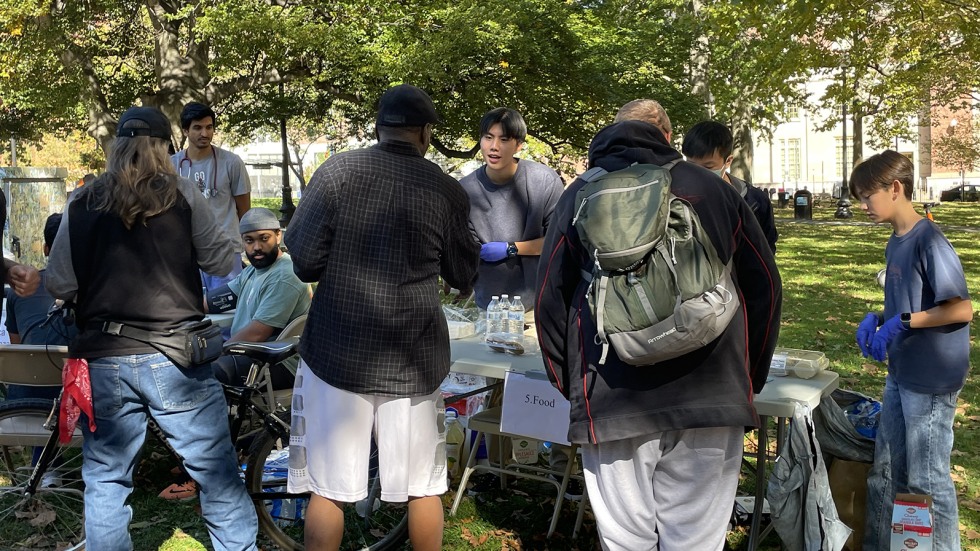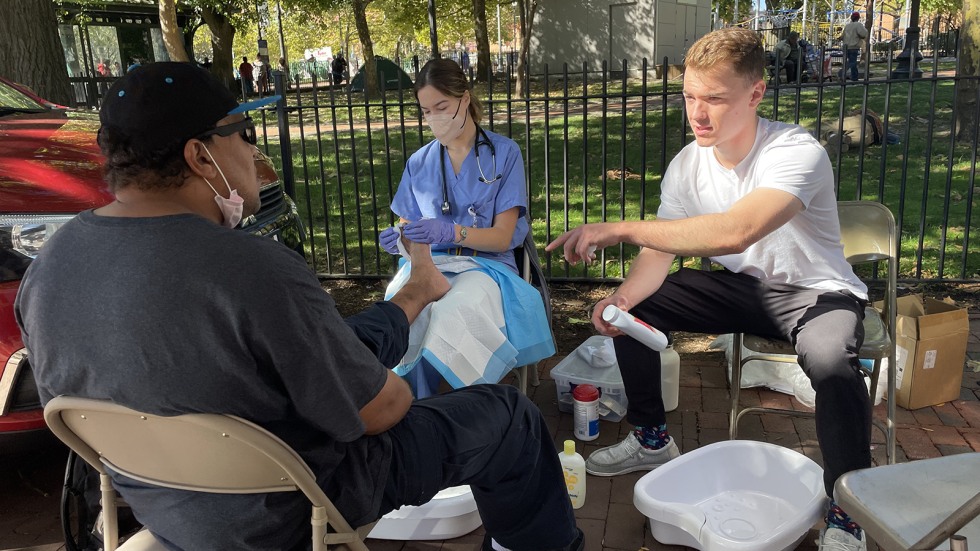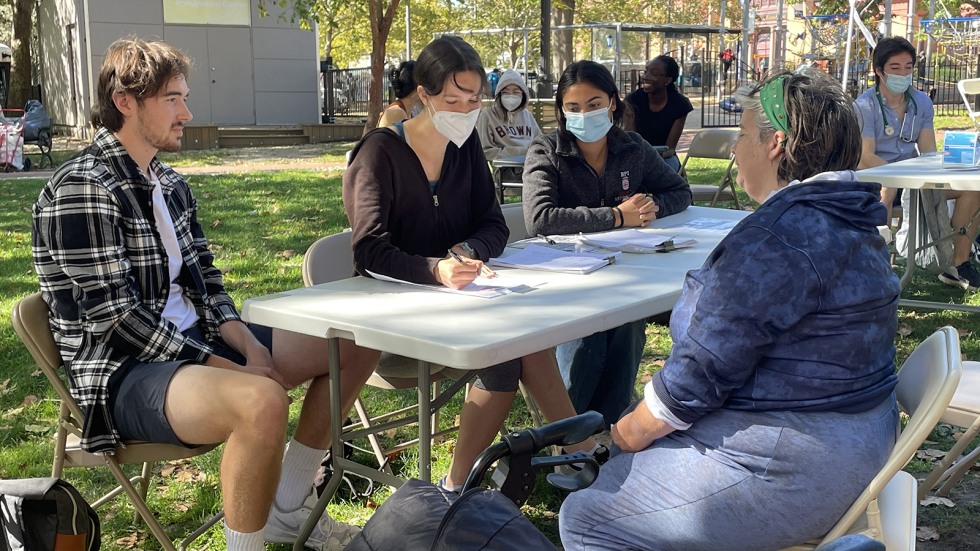The Rhode Island Coalition for the Homeless reports that roughly 1,100 Rhode Islanders are currently experiencing homelessness, and 300 live outdoors. For the unhoused, waiting times for emergency shelter beds or transitional housing can take months. Shared housing, malnutrition and weather exposure, compounded by a lack of access to regular preventive care or medications, put homeless individuals at risk for higher rates of illness and chronic conditions, including diabetes, hypertension and heart disease.
To encourage health fair participants to establish a health care provider relationship, many student volunteers help individuals complete health history forms that they can take to future appointments. Representatives from the Rhode Island Free Clinic, Clínica Esperanza and the Providence Community Health Centers attend the fair each year to make in-person connections and schedule follow-up care appointments.
“The key to the fair’s success is having all of these organizations nearby, so our participants can walk a few steps after completing their health history form to make an appointment,” said Makena Mette, a second-year medical student at Brown. “By featuring the free clinics, we hope to make them more accessible so that participants today can see them and realize that they’re an institution worthy of their time and trust and that they can go and get quality care.”
For Mette and other Brown medical students, patient advocacy and care delivery to historically and chronically underserved communities is a central part of what it means to be a health care provider. Clínica Esperanza and the Rhode Island Free Clinic attract between 75 and 100 medical students each year, and providing care at the clinics and organizing events like the Burnside Park Health Fair offer students an important opportunity to work in support of local community members.
“In all med schools, but specifically at Brown, we’re trained to get to know the patient and not just the diagnosis,” Mette said. “Hopefully, the medical system is changing to be more empathetic towards the plight of people who are unhoused because I think a lot of times, they aren’t receiving the care they should be getting because of all the biases that come with experiencing homelessness.”
In recent years, homelessness in Rhode Island has grown, and Jaworski credits community partners like those from Brown and its medical school for additional critical support.
“The work we’re faced with right now is simply overwhelming,” she said. “The demand for services far outweighs supply. The more folks that we can have working with us, the better. The medical practitioners and students at Brown are some of the unsung heroes we depend on. We’re grateful that there’s a real opportunity for partnership to do this work together."
